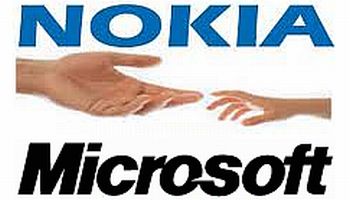Nokia’s Elop Survives Shareholder Rebellion

Nokia’s Windows Phone 7 decision continues to make waves after rebel shareholders called for Elop’s dismissal
Nokia boss Stephen Elop has survived a move to oust him after a group of of shareholders decided not to proceed with their so-called “Plan B”.
Following Elop’s controversial decision to adopt the Windows Phone 7 operating system as its primary smartphone platform late last week, a group of nine “young” Nokia shareholders banded together and published an open letter labelled “Plan B”.
Dated Monday 14 February, the rebels used the open letter to call for Elop’s immediate dismissal, as well as a restructuring of the alliance with Microsoft.
Rebels with a cause?
The rebel shareholders planned to present their alternative plan at Nokia’s next Annual General Meeting on 3 May.
Among the actions they proposed was the following:
- The immediate discharge of Stephen Elop from his duties as President and CEO of the company.
- To restructure the alliance with Microsoft as a tactical exercise focused primarily at the North American market
- MeeGo to be Nokia’s primary smartphone platform
- Increase the lifespan of Symbian to a minimum of 5 years
They also proposed that the developer strategy should be based on Qt with primary focus on MeeGo, but also with a credible developer option for Symbian. Other changes included an end to Nokia’s distributed R&D purposes and an end to R&D outsourcing; a leadership team shakeup; and the aggressive recruitment of young software talent from top universities.
The rebel shareholder suggestions in the open letter received thousands of supportive Tweets (1,616) and Facebook “likes” (4,970).
No Investment Support
But just 48 hours later, the rebels threw in the towel, citing a lack of support from the investment community, which is not a surprise since most investment analysts supported the move.
“After reviewing the feedback we’ve received from investors on our Plan B, we have decided not to carry on with it,” said the rebels. “In the last 36 hours we were contacted by hundreds of individual shareholders (owning anywhere from 10 to 400,000 Nokia shares) pledging to support us by proxy voting or by personally attending the AGM.”
“Nevertheless, the responses that we received from institutional investors were not encouraging,” the rebels said. “These institutions have a fiduciary responsibility to their customers and are legally bared from supporting radical initiatives like seating a bunch of kids on the board of directors. If they do not agree with Nokia’s plans, they are better off simply divesting and putting their money in other companies that better fit their investing strategy (which is exactly what they have been doing).”
But the group also said that they realised that by the time their Plan B would kick in, most remaining software talent in Nokia would have already left the company, “so it would be really an uphill battle to pick up things from there.”
“This is it from us. It’s up to you what to do with your money,” the rebels said.
Shareholder Unease
Although the rebel group was small, it illustrates the widespread unease that greeted the Windows Phone 7 announcement last week.
 Stephen Elop was until September the president of Microsoft’s business division, and he has been forced to defend himself against claims that he had pressed Nokia to accept the deal because of his allegiance to his former employers.
Stephen Elop was until September the president of Microsoft’s business division, and he has been forced to defend himself against claims that he had pressed Nokia to accept the deal because of his allegiance to his former employers.
Elop also has a large number of Microsoft shares, but he has pledged to sell them as soon as he can.
All of this, coupled with the fact that Microsoft is reportedly paying Nokia billions of dollars, after Elop was quoted as saying that the “value” of the Windows Phone 7 deal to Nokia would be measured in “Bs not Ms” (i.e. billions not millions), has not helped matters.
Indeed, since the announcement, Nokia’s stock has lost more than 20 percent of its value since the agreement was announced on Thursday.
As of Wednesday afternoon, shares in Nokia on the New York Stock Exchange at $9.06 (£5.65). But last Thursday, before the decision was announced, Nokia’s shares had been trading at $11.25 (£7.02).